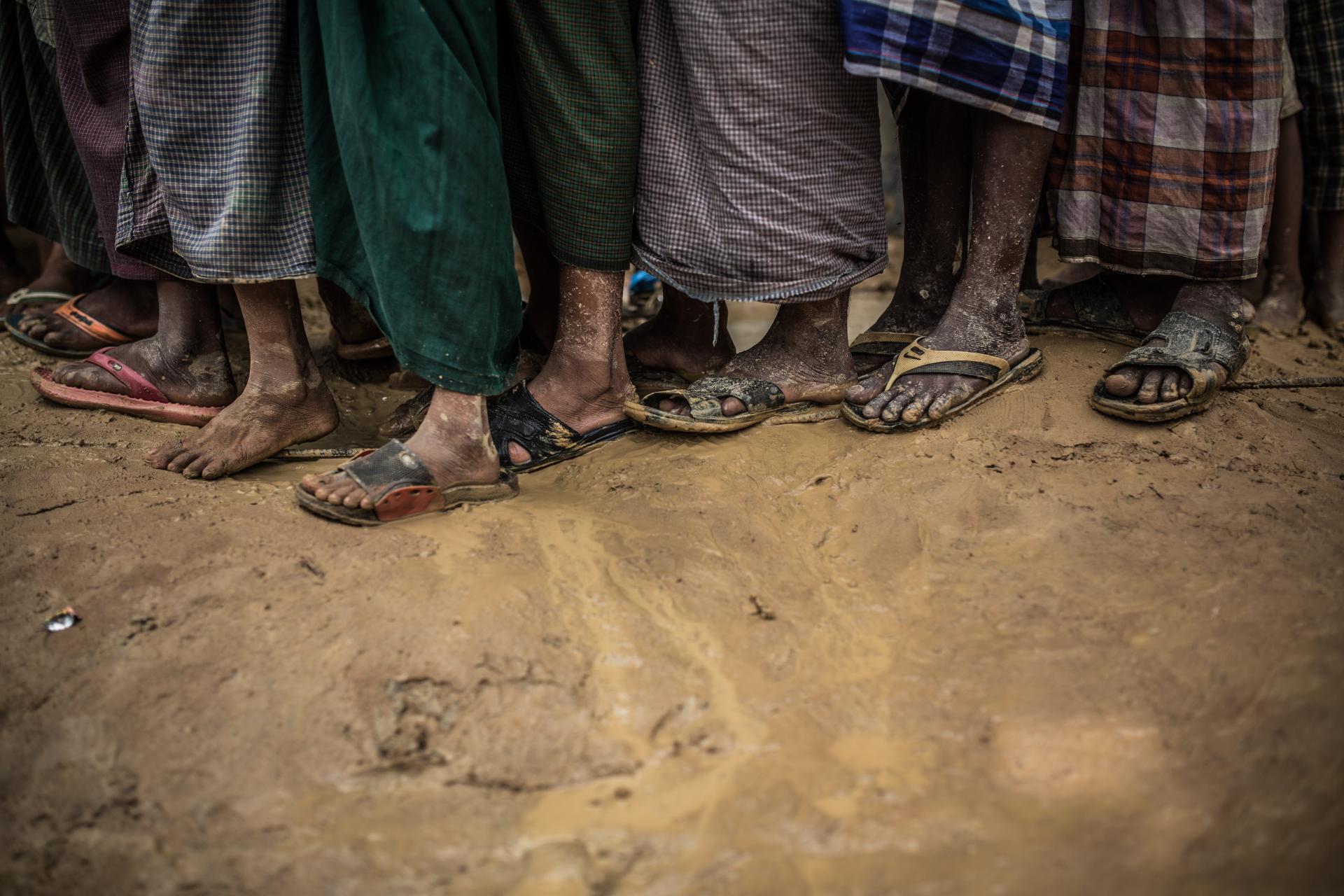Anna Cillers, Emergency Medical Coordinator in Bangladesh, writes about MSF’s work treating Rohingya refugees who’ve fled across the border from Myanmar:
"Displaced people are subjected to so much loss and trauma that I don’t think anyone is able to fully grasp the extent of it. They live in fear with the feeling that nothing is in their control. Even if they find a place of safety, everything is in someone else’s control. In Bangladesh, the Rohingya refugees MSF treats are not only displaced from their home country Myanmar, they are also stateless.
The sense of hopelessness among many people we meet in the refugee camps in Cox’s Bazar is almost tangible.
As MSF, we strive to shift our patients’ focus away from this feeling of hopelessness, onto something more constructive – like physically healing their wounds or making them feel better – which gives them some ownership and control over their lives and bodies once again.
In Bangladesh, the Rohingya live in precarious conditions, in a very densely populated area that’s prone to floods and landslides in the rainy season. Sanitation is not sufficient, nor is safe drinking water, and it’s ideal breeding space for mosquitoes – conditions that make it easy for diseases to spread.
Our teams have to plan for potential disasters and disease outbreaks that could affect this population (e.g. dengue and malaria, airborne diseases like the flu, or water borne diseases like cholera); we have to think about the population size, the essential medical needs, and how – when an emergency strikes – we contain it, control it, or treat it.
To be ready to respond to emergencies, we have to do a lot of pre-planning and procurement of supplies and medicines beforehand. We do this to be able to minimise the effect of the disaster on the refugees and to prevent the loss of life.
My time with the Rohingya has reminded me that providing medical care to displaced people is something real and physical in their lives; it is something tangible. By tending to people’s injuries, counselling them through trauma, and treating diseases like diphtheria, MSF is able to bring practical solutions. When people see improvements, when they see that care is available to them, it’s something positive that puts a little power back into their own hands.
For people like the Rohingya, who have lost everything, including in many cases their own control over their own lives and decisions, this can make a big difference.
I realized this one day in the measles ward in our hospital, where the team treated a baby while her caretaker sat beside her. As I passed by, the caretaker looked up and, despite the language barrier between us, her whole face lit up. Our eyes met and we made a genuine connection. Although it was a small moment, it will always stay with me because it reminded me how MSF’s medical work touches the core needs of humanity.
Among the displaced people we treat, the stories we hear are similar. There is this line of loss, a line of things that are now out of their control, a line of things that have been taken away.
But working with MSF, I’m glad to know that at least their medical needs are taken care of."
Find out more about MSF's work in Bangladesh
